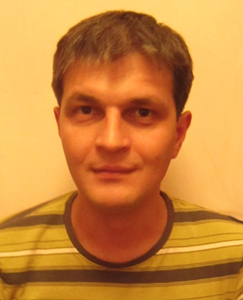
Marcel Mahdal
When the first students begin participating in IWalks, USC Shoah Foundation’s testimony-on-location program launching in Czech Republic, Marcel Mahdal will know how meaningful the experience is for them.
Mahdal is a teacher at Gymnázium of Pavel Tigrid in Czech Republic and a graduate of USC Shoah Foundation’s Teaching with Testimony in the 21st Century professional development program, in which he created a lesson called “London Calling,” which focuses on the Czech emigré experience in wartime England and the BBC broadcasts to occupied Bohemia and Moravia.
Mahdal is also the editor of PANT, a nonprofit educational portal for history teachers in Czech Republic that provides lessons and educational seminars. PANT frequently collaborates with USC Shoah Foundation to offer testimony clips from the Visual History Archive along with Powerpoint presentations, historical photographs and worksheets for teachers to download and use in their classrooms.
Mahdal said he first heard about the USC Shoah Foundation from a fellow teacher in 2004, who knew his interest in modern history and gave him a tape of her grandfather’s testimony to listen to. Mahdal was fascinated by the man’s story of survival during the Holocaust – after deportation from Czechoslovakia and two years in a Gulag, a Soviet labor camp, he returned to Czechoslokavia to serve in the army and eventually liberated his hometown. Mahdal began working with USC Shoah Foundation’s Czech coordinator, Martin Šmok, and has even helped lead teacher training seminars about the Visual History Archive.
During the Teaching with Testimony program, Mahdal and other participants went on testimony-guided excursions virtually identical to the IWalks now available on the USC Shoah Foundation website. At the former transit camp that housed Czech Jews before they were transported to Theresienstadt, the teachers watched testimony in which survivors described their experiences there. Mahdal said the experience “captivated“ him.
“When you stand in a place where injustice was happening, you realize better how everything happened,” Mahdal said. “I became aware that such an experience is much more intense than when you just hear or read about it. It felt like being a part of that time.”
Following Teaching with Testimony, Mahdal said he began creating lessons that are more focused on experiences, and started organizing field trips for his students to places where events of the Holocaust happened.
“We came from the classrooms to the city where the Holocaust took place, where you can still "feel" it,” he said. “I tried to show the students their familiar places from a different perspective and get them closer to the history that had taken place near their everyday lives – the history that could be otherwise forgotten.”
Mahdal said that standing in a place you know very well and learning facts about the Holocaust that you didn’t know before is very powerful, and it’s a singular experience that can teach students a lot.
“Knowing the history of the place where you live, where you grow up, even if they are connected with tragic historical events, will help you to understand your place on Earth, your roots and roles,” he said. “Without this information our lives cannot be full.”